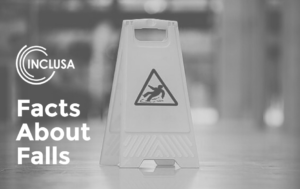One of the most difficult jobs in the world is being the caregiver for a person who’s  chronically ill or has a disability.
chronically ill or has a disability.
The combination of concern and heartache over your loved one’s condition plus the physical demand of it can put you in a position where your own energy and emotional stores are empty. Once you’re in such a state, the quality of the care you provide will slip, too, and then everyone suffers.
Recognize the signs of caregiver stress
The first step toward taking care of yourself is recognizing the signs that you’re overly stressed. Oftentimes these signs will manifest as
• Sleep problems
• Poor eating habits
• Irritability
• Forgetfulness
• Failure to exercise
• Failure to rest or see a healthcare provider when needed
To care for others, caregivers must also take care of themselves
If you identify with any of these signs, you need to take action; you need to take care of yourself. That begins with doing what you can to make sure you get sufficient sleep, eat healthfully and exercise, but in many circumstances, caregivers can’t find a way to fit it all in. If that describes you, it’s time to accept or ask for help.
Ask for or accept help
Discard any notion that the need for help indicates weakness or failure. It’s actually a sign of wisdom in knowing your limits and commitment to your loved one in keeping yourself strong for them.
Before asking for help, write a list of ways that others can step in. Do you need help with transportation? Do you need someone to come in the afternoons so you can rest or work out? Perhaps healthy meals are what you need. Or maybe you need all of the above. The beauty in having a list is that when someone asks how they can help—or you ask someone yourself—you’ll have a list of ways they can do it in a truly beneficial way.
Take time for other relationships
Social support is key for caregivers. Oftentimes caregivers become completely focused on the person they’re caring for and isolate themselves from other relationships that can uplift, support and encourage them. And that’s important for continued well-being.
That social support can be found among your existing circle of friends, your church or even a support group. If you’re seeking such support but don’t know where to turn, ask your doctor to refer you to a social services worker.
Use FMLA
Caregiving can be especially overwhelming for people who also work outside their homes. FMLA stands for the Family and Medical Leave Act, and if you’re eligible, it allows you to take up to 12 weeks of unpaid leave each year to care for relatives. You can learn more about this option through your employer’s human resources department.
See your doctor
Caregivers often are ministering to people with compromised immune systems, making it especially important to stay on top of your own health.
Plus, several studies have shown that caregivers are at an increased risk for depression and anxiety. These are conditions you should discuss with your doctor, first, to rule out any other causes and, second, to guide you to additional care. So if you’re showing any of the signs referenced above, be sure to mention them to your physician.
###





 2733 South Ridge Road
2733 South Ridge Road

 Mental illness can strike at any time
Mental illness can strike at any time chronically ill or has a disability.
chronically ill or has a disability.
